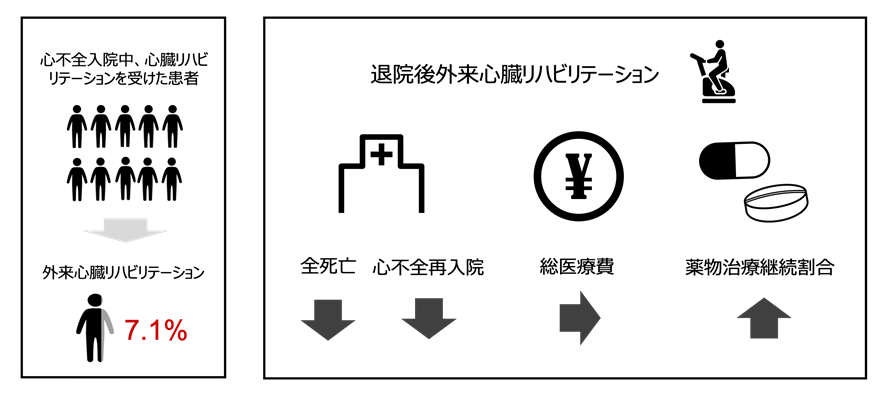2022-12-05 ケンブリッジ大学
この薬剤は副作用が少なく、安価であり、将来のSARS-CoV-2の亜種から身を守ることができるはずである。
科学者たちは、「ミニ臓器」、ドナー臓器、動物実験、患者を独自に組み合わせた研究により、COVID-19を予防するために再利用できる薬剤を同定した。
ある種の肝臓疾患の治療に使われている既存の薬剤が、SARS-CoV-2が細胞に侵入する際の入り口である、細胞表面のACE2と呼ばれる受容体を「ロック」できることが明らかになった。この薬はウイルスではなく宿主細胞を標的にしているので、将来出現するかもしれない他のコロナウイルスと同様に、ウイルスの新しい亜種からも保護されるはずである。
<関連情報>
FXR阻害はACE2の減少によりSARS-CoV-2感染から保護される可能性がある FXR inhibition may protect from SARS-CoV-2 infection by reducing ACE2
Teresa Brevini,Mailis Maes,Gwilym J. Webb,Binu V. John,Claudia D. Fuchs,Gustav Buescher,Lu Wang,Chelsea Griffiths,Marnie L. Brown,William E. Scott III,Pehuén Pereyra-Gerber,William T. H. Gelson,Stephanie Brown,Scott Dillon,Daniele Muraro,Jo Sharp,Megan Neary,Helen Box,Lee Tatham,James Stewart,Paul Curley,Henry Pertinez,Sally Forrest,Petra Mlcochova,Sagar S. Varankar,Mahnaz Darvish-Damavandi,Victoria L. Mulcahy,Rhoda E. Kuc,Thomas L. Williams,James A. Heslop,Davide Rossetti,Olivia C. Tysoe,Vasileios Galanakis,Marta Vila-Gonzalez,Thomas W. M. Crozier,Johannes Bargehr,Sanjay Sinha,Sara S. Upponi,Corrina Fear,Lisa Swift,Kourosh Saeb-Parsy,Susan E. Davies,Axel Wester,Hannes Hagström,Espen Melum,Darran Clements,Peter Humphreys,Jo Herriott,Edyta Kijak,Helen Cox,Chloe Bramwell,Anthony Valentijn,Christopher J. R. Illingworth,UK-PBC research consortium,Bassam Dahman,Dustin R. Bastaich,Raphaella D. Ferreira,Thomas Marjot,Eleanor Barnes,Andrew M. Moon,Alfred S. Barritt IV,Ravindra K. Gupta,Stephen Baker,Anthony P. Davenport,Gareth Corbett,Vassilis G. Gorgoulis,Simon J. A. Buczacki,Joo-Hyeon Lee,Nicholas J. Matheson,Michael Trauner,Andrew J. Fisher,Paul Gibbs,Andrew J. Butler,Christopher J. E. Watson,George F. Mells,Gordon Dougan,Andrew Owen,Ansgar W. Lohse,Ludovic Vallier & Fotios Sampaziotis
Nature Published:05 December 2022
DOI:https://doi.org/10.1038/s41586-022-05594-0
We are providing an unedited version of this manuscript to give early access to its findings. Before final publication, the manuscript will undergo further editing. Please note there may be errors present which affect the content, and all legal disclaimers apply.
Abstract
Prevention of SARS-CoV-2 infection through the modulation of viral host receptors, such as ACE21, could represent a new chemoprophylactic approach for COVID-19 complementing vaccination2,3. However, the mechanisms controlling ACE2 expression remain elusive. Here, we identify the farnesoid X receptor (FXR) as a direct regulator of ACE2 transcription in multiple COVID19-affected tissues, including the gastrointestinal and respiratory systems. We then use the over-the-counter compound z-guggulsterone (ZGG) and the off-patent drug ursodeoxycholic acid (UDCA) to reduce FXR signalling and downregulate ACE2 in human lung, cholangiocyte and intestinal organoids and in the corresponding tissues in mice and hamsters. We demonstrate that UDCA-mediated ACE2 downregulation reduces susceptibility to SARS-CoV-2 infection in vitro, in vivo and in human lungs and livers perfused ex situ. Furthermore, we illustrate that UDCA reduces ACE2 expression in the nasal epithelium in humans. Finally, we identify a correlation between UDCA treatment and positive clinical outcomes following SARS-CoV-2 infection using retrospective registry data, and confirm these findings in an independent validation cohort of liver transplant recipients. In conclusion, we identify a novel function of FXR in controlling ACE2 expression and provide evidence that modulation of this pathway could be beneficial for reducing SARS-CoV-2 infection, paving the road for future clinical trials.


